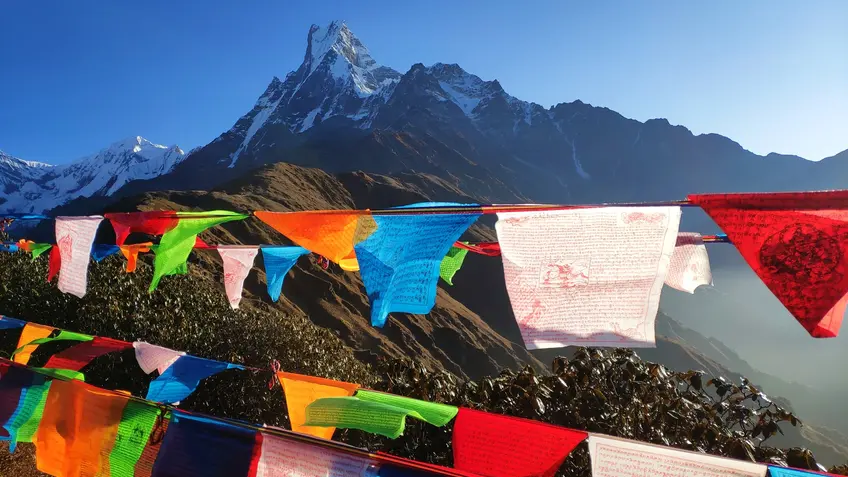Nepal Leaps with High Quality 2020 NDC and Improved Development Ranking
This month, Nepal joined an exemplary group of nations in submitting its second national climate plan on the eve of the Paris Agreement’s fifth anniversary. Nepal’s improved and high quality NDC is estimated to cost USD28.4 billion, or over 90 percent of GDP. The updated commitments draw on lessons captured while implementing its ambitious first pledge in 2016 to reaffirm its commitment to the Paris Agreement.
The 2020 NDC features legal, institutional, and financial frameworks, reliable cost estimates, and likely financial and economic implications. The Himalayan nation’s high-quality climate plan is data-driven with high emphasis on sound data collection and reporting methodologies.
NDC Partnership members were among the first to support Nepal’s 2020 NDC enhancement on both mitigation and adaptation targets. Through the Partnership’s Climate Action Enhancement Package (CAEP), Climate Analytics led sectoral assessments of electric transport, electric cooking, forestry, modelling, and cost-benefit analysis of targets. Nepal also provides a variety of Information for Clarity, Transparency, and Understanding (ICTU) of mitigation components. This includes quantifiable information on the reference points, timeframes, periods of implementation, scope and coverage, planning processes, assumptions, and methodological approaches.
Nepal’s technically sound 2020 NDC includes quantifiable targets for the short-term (by 2025) and medium-term (by 2030) and spans energy, waste, and agriculture, forestry and other land use (AFOLU). Nepal’s quantifiable energy sector targets include sub-sectors of energy generation, transport, residential cooking, and biogas. The Low Emissions Alternative Platform (LEAP) software was used to model both ‘Business-As-Usual’ and ambitious 2020 NDC scenarios (2021 to 2030) to manage data reliability gaps across sub-sectors.
The impact of the NDC 2020 scenario was calculated by comparing future trends in short and medium terms. The comparison relied on accurate estimation of changes in energy demand and supply, reductions in fossil fuel dependency, and GHG emissions. The country performed other modelling exercises and assessments to set targets for the forestry and waste sub-sectors. The 2020 NDC also sets policy-based targets for energy, AFOLU, industry, waste, tourism, urban settlements, gender equality, and social inclusion.
Nepal also identified adaptation priorities and actions across thematic areas that are in line with its National Climate Change Policy (2019). The nation’s adaptation priorities include agriculture and food security; forests, biodiversity and watershed conservation; energy; health; and disaster risk reduction and management.
The comprehensive plan for a more sustainable future comes amid improved development outcomes and Nepal’s pending graduation from the ranks of Least Developed Countries. Nepal is paving the way to implement its 2020 NDC by estimating the costs of its mitigation targets. The primary mitigation targets include generating 15 percent of national energy demand from clean energy sources by 2030. Nepal’s targets also put it on track to cut fossil fuel dependency and GHG emissions by 28 percent by 2030. This ambitious pathway for climate action is fostered by planned deployment of e-mobility initiatives to reduce fossil fuel dependency and programs to cut GHG emissions. The national mitigation strategy is reinforced by a bold commitment to maintain 45 percent of forest coverage, sustainably manage a half of the Tarai and Inner Tarai forests, and a quarter of middle hills and mountain forests by 2030. Having pledged over a tenth of the resources needed to achieve its improved national climate plan, Nepal anticipates financial, technological, and capacity support from development partners to bolster resources and boost climate action. Nepal aims to create high societal ownership to implement its 2020 NDC in a timely manner at all levels by aligning its updated NDC targets with existing policies and plans.
The NDC Partnership stands ready to support the Government of Nepal to mobilize resources to implement this inclusive 2020 NDC. Nepal’s 2020 NDC is a landmark achievement which increases ambition while strengthening legal, policy, and institutional mechanisms to support implementation. Its formulation embodies the principle of ‘Leave No One Behind’, which is exemplified by stakeholder and expert consultations that captured the priorities of women, youth, Indigenous Peoples, and marginalized groups.
“I am happy that 2020 NDC was process-driven and inclusive with wider stakeholder consultations. The targets are ambitious while also being achievable,” concludes Dr. Radha Wagle, Chief of Climate Change Management Division and Joint Secretary at the Ministry of Forests and Environment.
This blog was written by Abhishek Yadav, NDC Partnership In-Country Facilitator for Nepal and Manjeet Dhakal and Sneha Pandey from Climate Analytics.
NDCs or Nationally Determined Contributions are formal national climate plans required by the Paris Agreement on Climate Change (2015).
